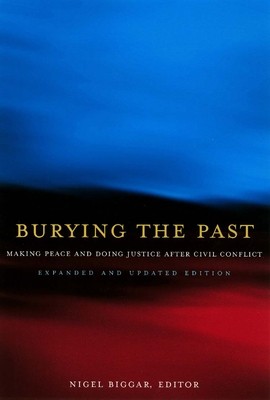
- We will send in 10–14 business days.
- Publisher: Georgetown University Press
- ISBN-10: 0878403949
- ISBN-13: 9780878403943
- Format: 15.8 x 23.3 x 2 cm, softcover
- Language: English
- SAVE -10% with code: EXTRA
Burying the Past (e-book) (used book) | bookbook.eu
Reviews
Description
An international cast of scholars examines the process of burying the past after civil conflict. Should newly democratic countries draw a veil over their violent and repressive history, or expose painful truths? Should they require confessions from malefactors? Are such confessions without punishment sufficient for justice? These are among the questions to which the contributors respond, with special attention to South Africa's Truth and Reconciliation Commission, North Ireland's peace process, and the detention of Chile's General Pinochet, as well as case studies from Rwanda and Guatemala. Contributors examine ethical concepts such as justice, retribution, forgiveness, and reconciliation, and they consider the process of burying the past at each of its different levels: international law, national institutions, local communities, and individual psychology.
EXTRA 10 % discount with code: EXTRA
The promotion ends in 18d.21:33:10
The discount code is valid when purchasing from 10 €. Discounts do not stack.
- Publisher: Georgetown University Press
- ISBN-10: 0878403949
- ISBN-13: 9780878403943
- Format: 15.8 x 23.3 x 2 cm, softcover
- Language: English English
An international cast of scholars examines the process of burying the past after civil conflict. Should newly democratic countries draw a veil over their violent and repressive history, or expose painful truths? Should they require confessions from malefactors? Are such confessions without punishment sufficient for justice? These are among the questions to which the contributors respond, with special attention to South Africa's Truth and Reconciliation Commission, North Ireland's peace process, and the detention of Chile's General Pinochet, as well as case studies from Rwanda and Guatemala. Contributors examine ethical concepts such as justice, retribution, forgiveness, and reconciliation, and they consider the process of burying the past at each of its different levels: international law, national institutions, local communities, and individual psychology.


Reviews